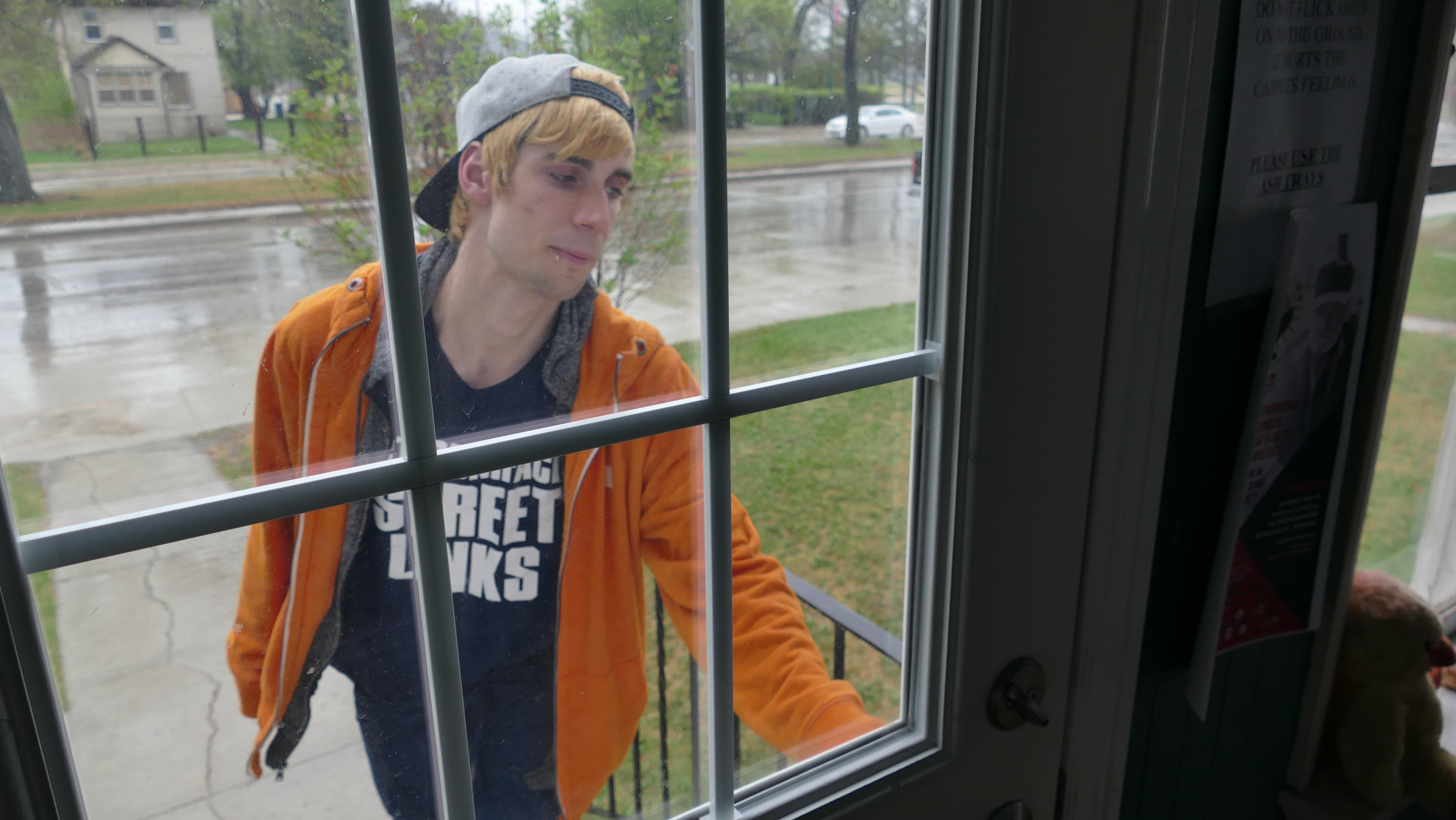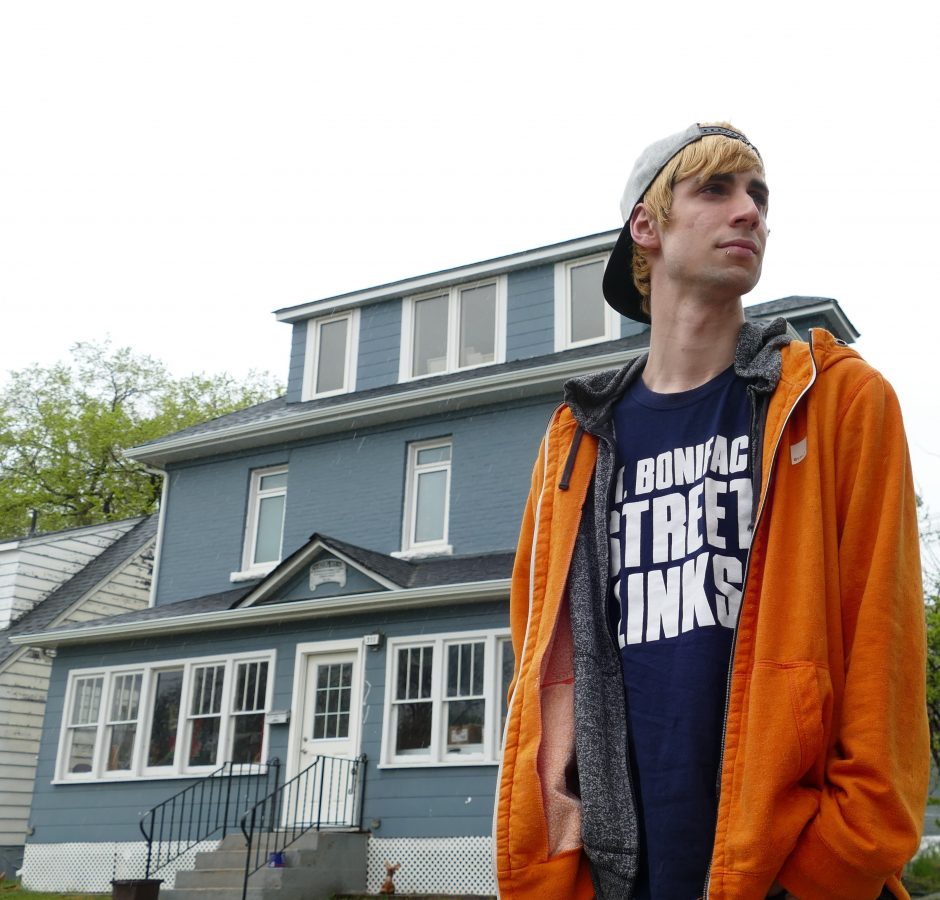May 21, 2018
The walls are bare and there's only a chair and a bicycle in Sam Lavallee's living room, but this two-bedroom apartment in East Kildonan is his haven.
"It feels like home," the 21-year-old Winnipegger says. "I can actually sit here and be at home and feel comfortable — don't have to worry about the righteousness of the streets, gang activity, people being hurt, just the drugs, everything. I am far away from that."
That's a huge turnaround for someone whose home was gutted by arson when he was a teen, precipitating a crisis that led him to choose the streets over being taken into long-term care by Child and Family Services.
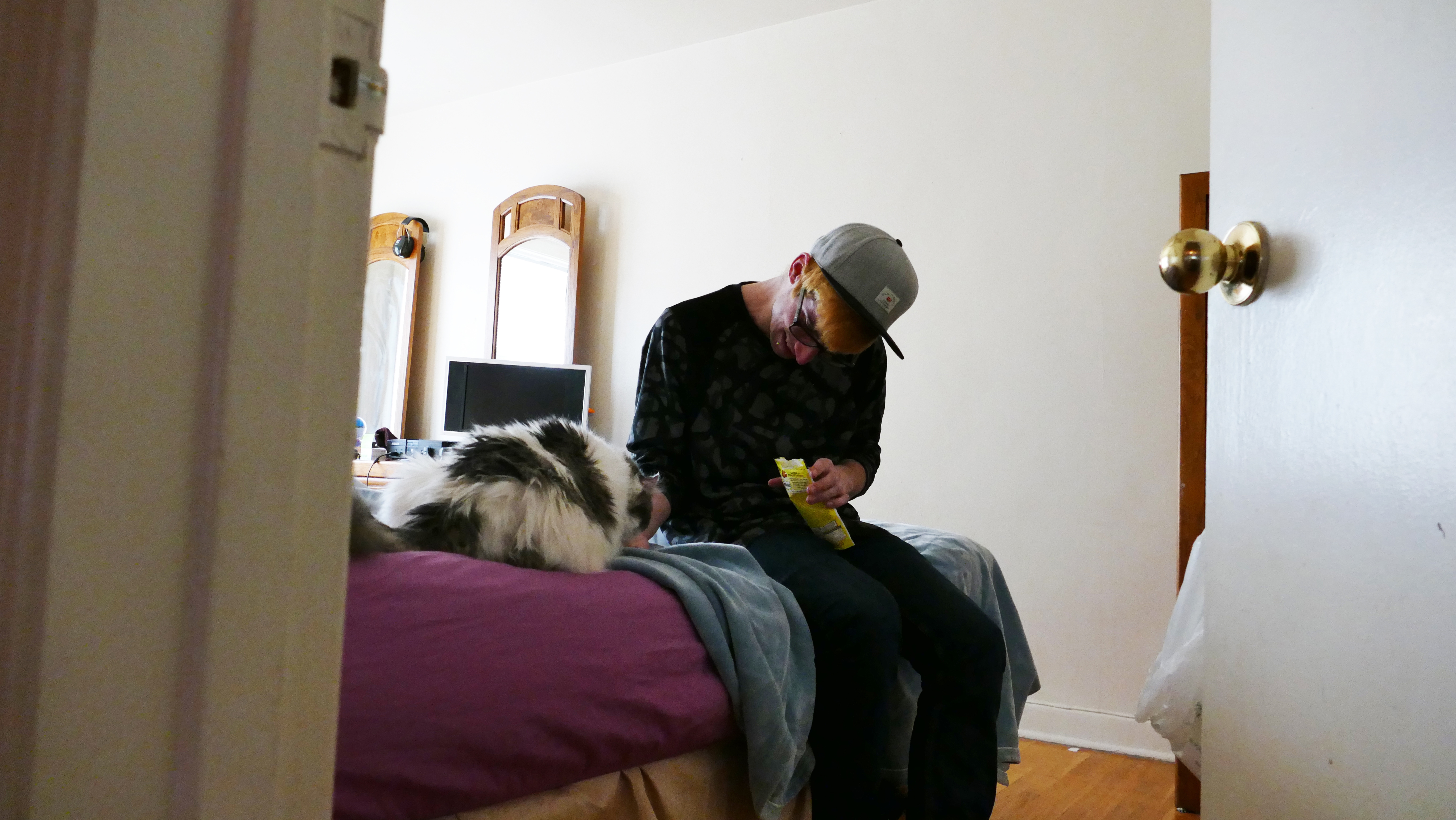
Lavallee is one of at least 180 men who have sought refuge at Morberg House, a 10-bed home that offers transitional housing to the homeless.
It opened in 2016 and already has a remarkable track record for getting people off the streets, linking them with mental health services and helping them beat addictions and find permanent housing. Among the men who have lived at the three-bedroom house on Provencher Boulevard, only four have gone back to the streets, said Marion Willis, a former social worker and the founder of Morberg House.
Some of the men pulled off the streets by Morberg House and Willis shared their stories about how they moved off the streets with the CBC.
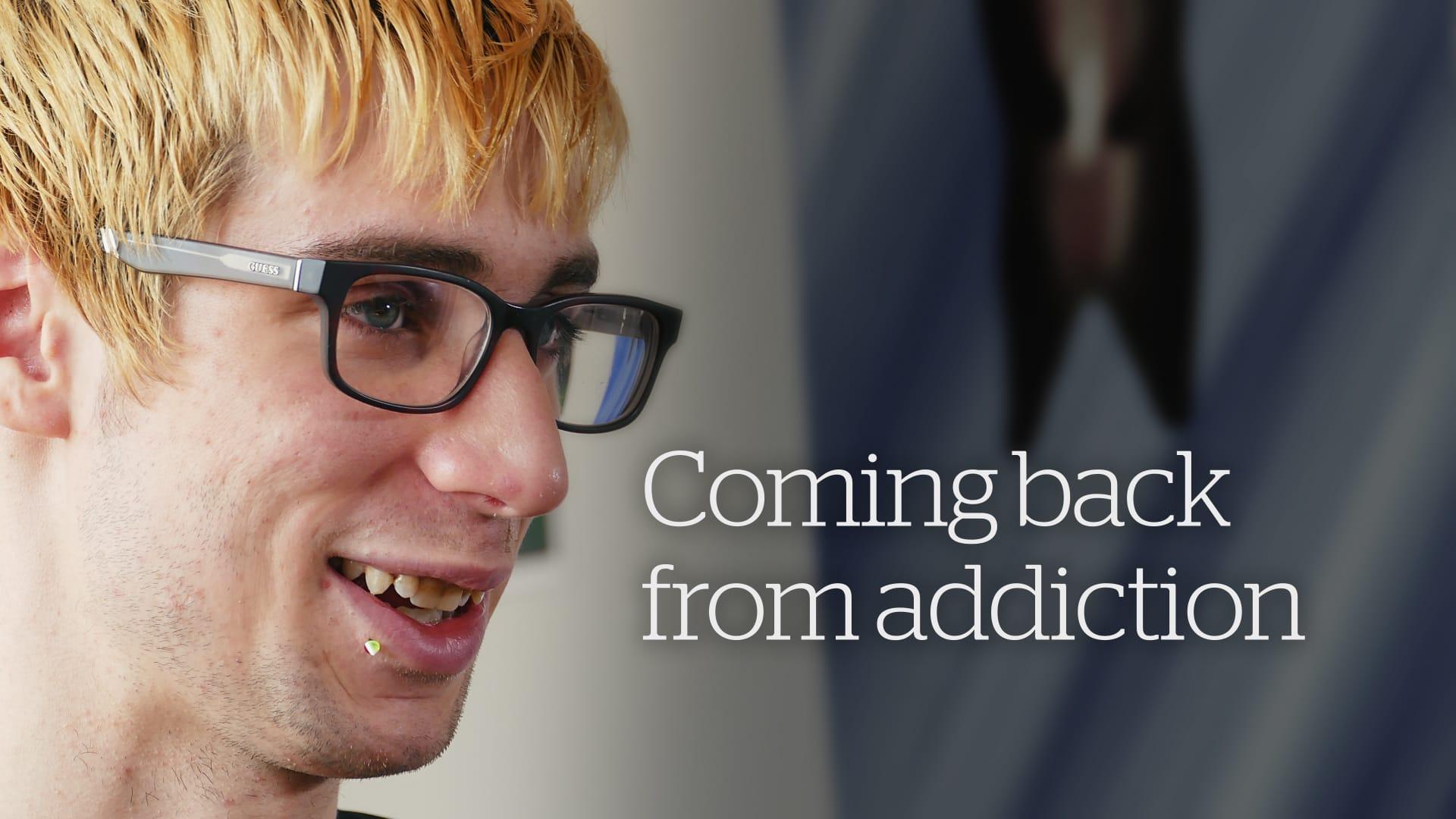
Lavallee's childhood was troubled and lonely.
He was the fourth of seven children growing up poor in Winnipeg's North End. He was bullied at school and teased for getting straight As.
His father was involved in organized crime. His mother was diagnosed with epilepsy and depression.
When he was 12, his dad died.
After a fire made the family home unlivable, he couch surfed at friends' places for a little while.
He had a brief period of stability, with a job, a home and a car, but it didn't last.
"I started getting involved in trap houses, as they call it, where illegal activity happens. People use substances. People sell substances. It's a place where there are no rules."
Lavallee didn't sell, but he did use meth, and went into a downward spiral of addiction and sleepless nights in the inner city and near The Forks. If he slept, he was afraid he would be beaten up or robbed.
He went to a drop-in at RAY, Resource Assistance for Youth. A mental health worker put him in touch with Willis.
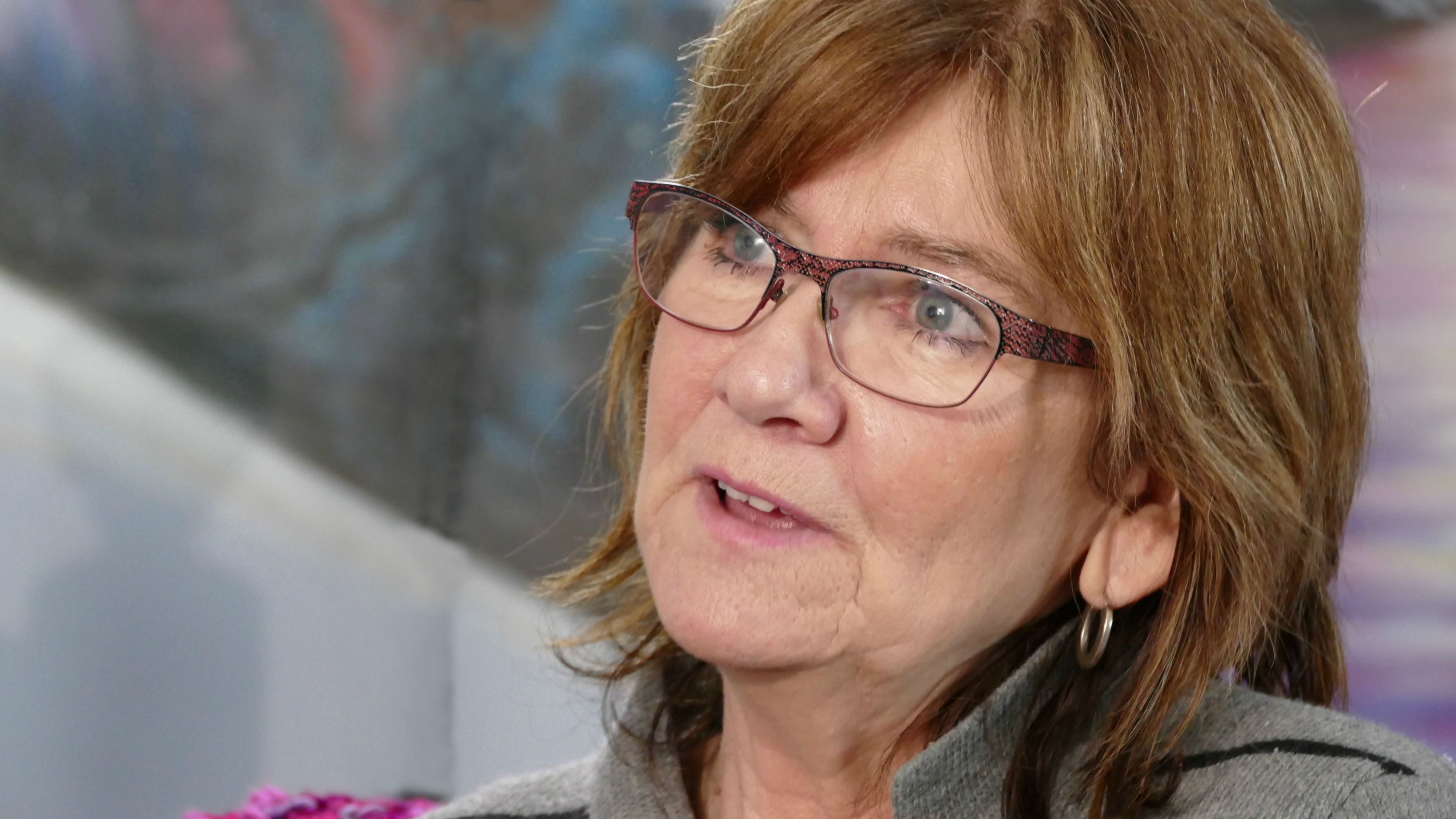
On the streets, he was written off as a greasy meth head, but he was searching for support and help. He found that and more at Morberg.
"The biggest thing I am appreciative of is the support I got. A lot of people who are battling addictions don't have the support," Lavallee said.
"This place gave me that support and help and that gave me the courage to say I don't need this. I completely don't need to go back. I don't need to look at it anymore."
Lavallee — angry, distrustful and withdrawn — was one of the youngest clients Willis had ever taken in. She connected him to medical people and programs that helped him with his depression.
Lavallee began to open up, realizing he felt like he belonged at Morberg. He began to share his story with clients and eat his meals with others at the kitchen table, instead of withdrawing into his room.
"All of sudden something just clicked for him," said Willis. "He became more engaging. He became more willing to trust us. He became more willing to share his story."
Lavallee, still living at Morberg, took on a volunteer position in January. A couple of months later, he was offered a full-time paid position as a peer support worker.
It was an epiphany moment and he was euphoric.
"This could be my breakthrough. This could be where I go back to where I was before, because I used to work a full-time job, had my own place, had my own car. I had everything and lost it all, hit rock bottom," Lavallee said.
It was the start of his climb up. Now he wants to give back.
"These people went out of their way to help me, so I want to go out of my way to help them," he said.
Lavallee took over the lease of his East Kildonan apartment in March. Now he wants to go back to school, possibly to become a counsellor.
Willis said she has never seen someone so young turn his life around so quickly.
Hiring Lavallee didn't only help him, though — it paid huge dividends for Morberg House, too.
"I can tell you I have never met anyone in recent years who is so well-organized, who pays such attention to detail, who is willing to receive and take direction, who is so responsible and so reliable and feels so empowered," Willis said.
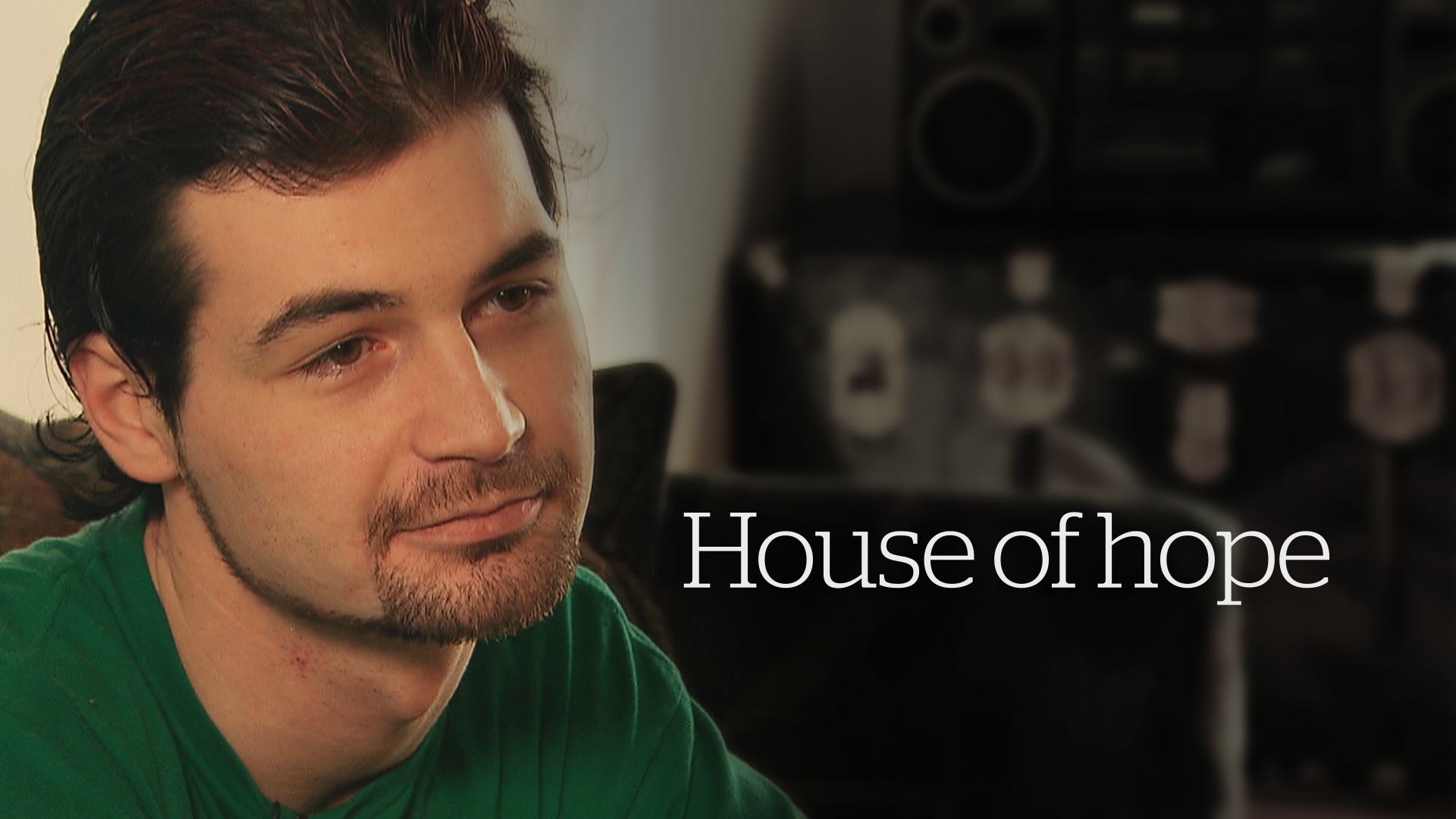
On Des Meurons in St. Boniface, 24-year-old Austin Saunders sits on the couch in his recently rented 1,200-square-foot house. Furniture is sparse, but his pride is evident.
This is a world away from sleeping on and off the streets for three years, battling depression and anxiety.
Saunders went into the care of Child and Family Services when he was 12.
When he turned 17, an addict on the street was nearly twice his age gave him a handwritten note.
"The note said there was not much time left for this person. He told me I have my whole life ahead of me and don't mess it up. From that day forward, I started to get clean," Saunders said.
"That man passed away shortly after. Another person who I had also gotten close to on the streets died. She was 33 and had pneumonia. That hit me really hard."
Saunders spent months in and out of hospitals after several suicide attempts. He couldn't find help anywhere until he met Marion Willis outside a Tim Hortons in December 2016.
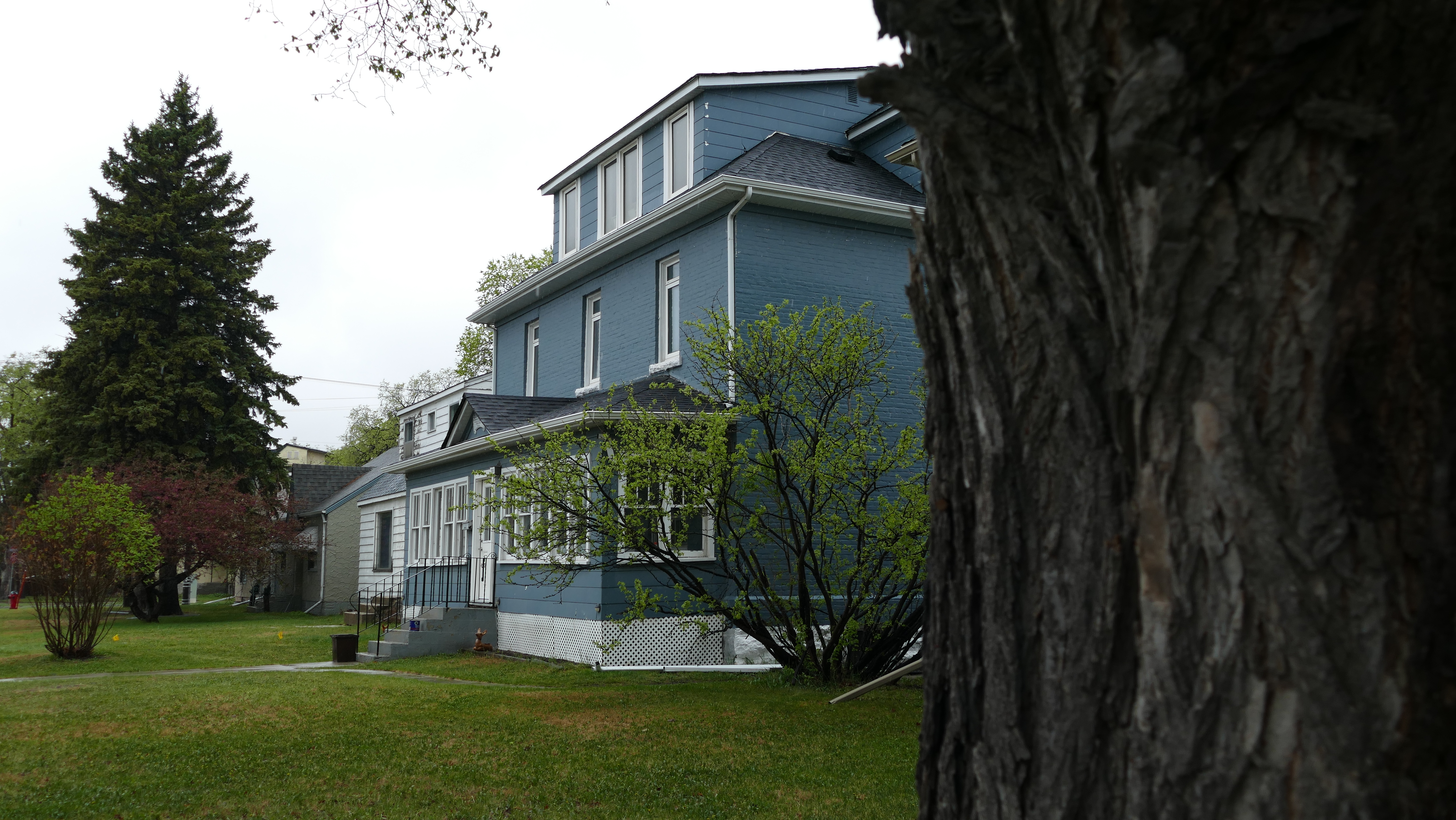
As with Lavallee, Willis connected Saunders to mental health services he couldn't get when he was homeless. He has been diagnosed with Asperger's syndrome, attention deficit hyperactivity disorder (ADHD), oppositional defiance disorder, anxiety, depression and borderline personality disorder.
Saunders said when he moved into Morberg, he had hope for the first time in his life.
"I was able to get on proper medication. Mental health was a huge support, but just even Marion being there for us the way she is. It's just like a huge family."
Through Morberg House, Saunders was also able to reconnect with his own biological family.
And he's found his future family — he's engaged to be married.
Ashley Grant, his fiancé, said they get playfully teased about being the first Morberg romance. While Morberg is a shelter for men, Willis got Grant off the street last August, finding her housing in North Point Douglas and connecting her with mental health services.
Shortly after that, Saunders and Grant met. The rest, says Grant, is history.
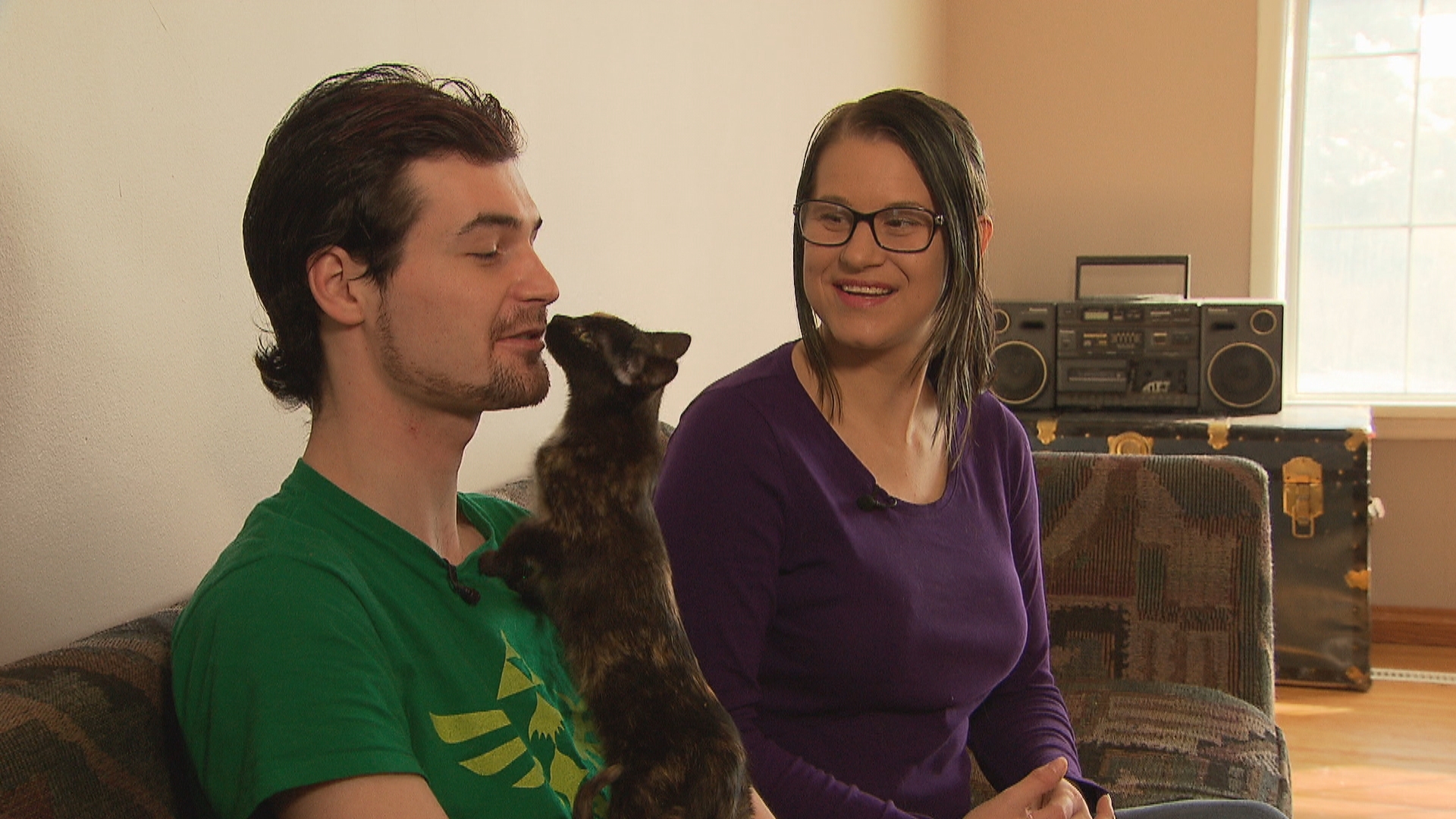
"He took me to the mall one day and we were looking at jewelry. He had a budget and picked the ring," she said. "He has so many good qualities. He's got a good heart, he's non-judgmental. I love his smile."
Saunders is on a waiting list to get into a program at the Selkirk Mental Health Centre for behavioural therapy, which he said will help retrain his brain and emotions to make better choices.
"It's a year-long program, and I will be voluntarily committing myself to do it, so it's a big step and it's going to be hard, but it's going to be something that is worthwhile."
After that, he hopes to tie the knot with Ashley.
Even though Saunders is now in a place of his own, he talks to Willis almost every day. She encourages him as he moves forward with a solid mental health plan for stability.
Saunders, a certified network engineer, hopes to go back to Red River College to study computer science.
While he can't predict the future, he is committed to moving forward, getting well and fighting to keep the ground he has gained.
He never thought he would live in a place he could call his own.
He has a debt of gratitude.
"I am very positive I will be able to change something, like Marion. I want to help the homeless one day too. I just want to bring about change. They say one man can't bring about change, but I think they can if they really try."
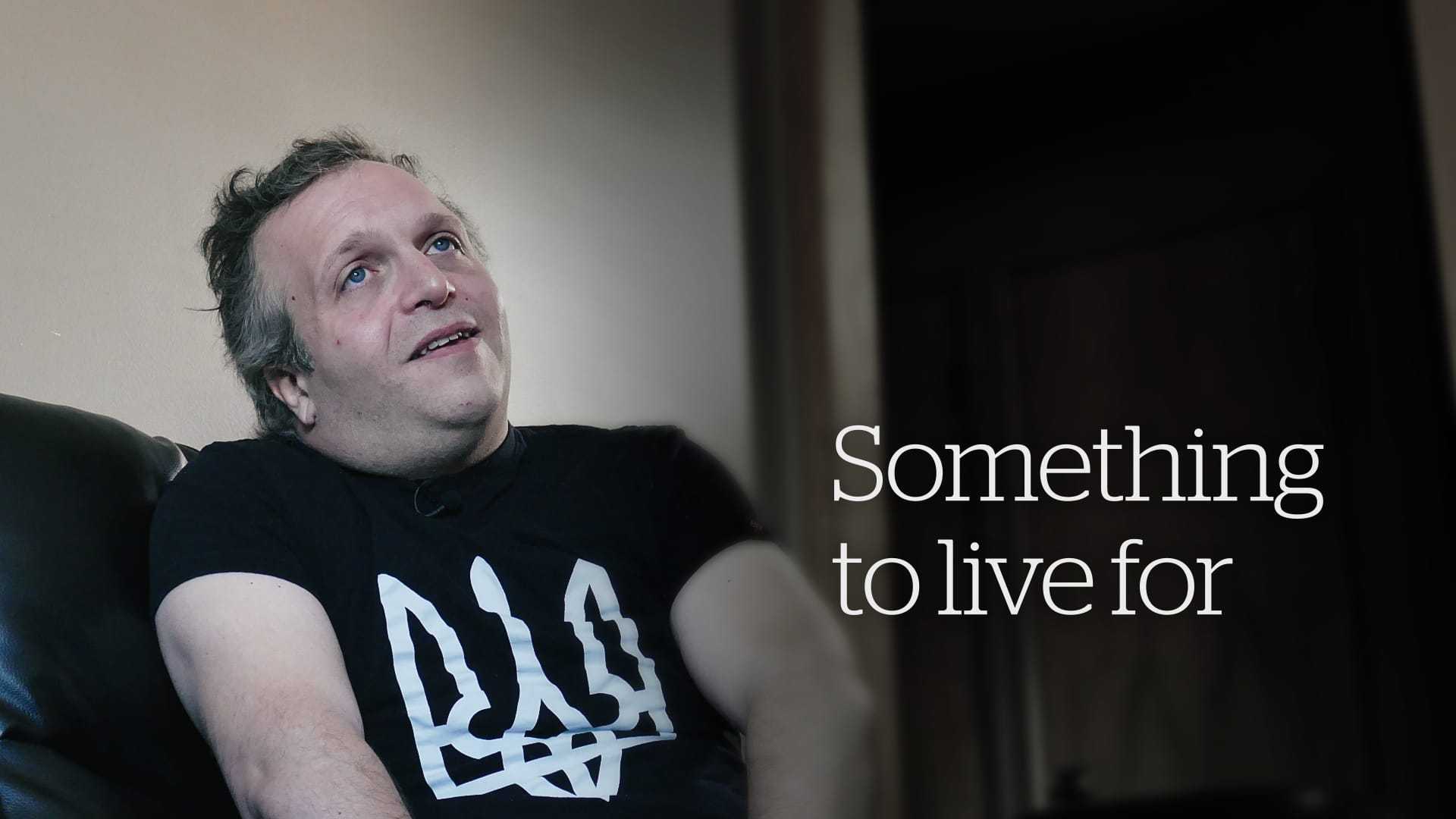
That has become a mantra for 37-year-old Matt Ford:
Bring about change.
Pay it forward.
Make a difference.
Ford doesn't fit the stereotype of a homeless person. He has a PHD in computer engineering. He is highly articulate and outspoken.
A child victim of physical and mental abuse, Ford masked his pain by drinking, he said.
He got married at 21 and had four children. In his words, he put everything on the back burner, storing up what happened to him as a kid.
But tragedy triggered a sharp downward spiral.
His three-month-old daughter died.
"It was so emotional. It was the most brutal part of my life. I quickly found myself not be able to cope with certain situations, plus the mental health, plus the anxiety, the post-traumatic stress," Ford said.
He remembers calling work just hours after his daughter's death to tell his employer he wouldn't be in. The response he got was an extra kick to the gut.
"They had the audacity to tell me it was too short notice. I felt violated on so many levels as a human being. I later took this through the union. It was not good for me mentally. How can you just say that to another person who has just lost their child?"
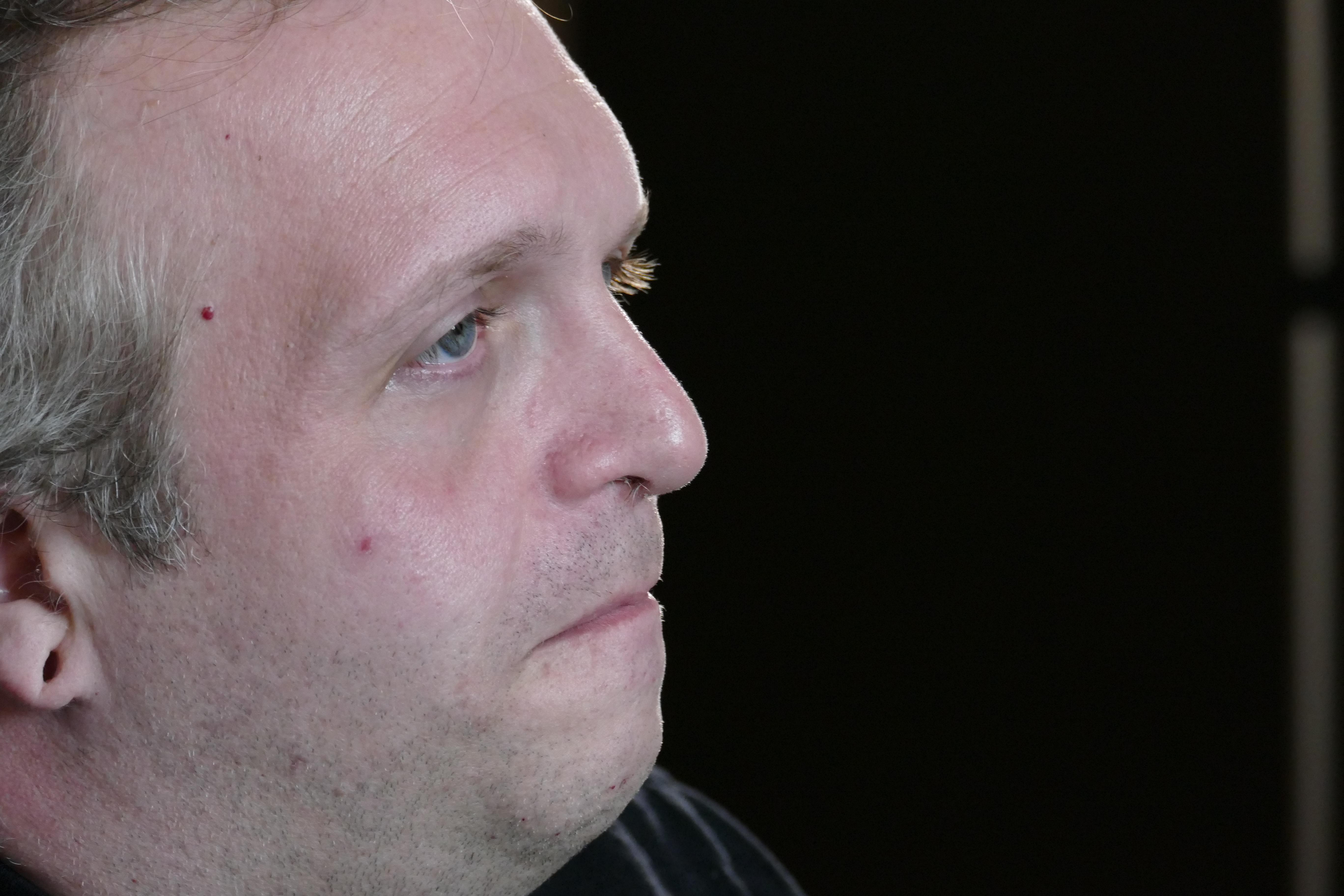
Ford's marriage fell apart. His solace was in the bottom of a bottle. For the next three or four years, he couch surfed, spent time at Siloam Mission and even slept on the street.
Before he was homeless, he never gave street people money.
"Get yourself on welfare buddy, get yourself help," is what he thought, he said.
"Then you walk in their shoes. It's an entirely different story. You don't know how hard the struggle is until you walk in their shoes."
One night after drinking half a bottle of Crown Royal, Ford realized he had to stop.
"This is going to kill me. It's simple. It's just going to kill me," he said.
He decided he had so much more to live for.
"It was just a pure epiphany for me."
He moved into Morberg House in June 2017 and got the help he couldn't find anywhere else.
What sets Morberg apart from other shelters is the support and community, he said.
"That was the most beautiful difference — someone who always genuinely wanted to know how you were doing."
He loves the flexibility of Morberg House, where residents come and go as they please, with unstructured access to areas like the kitchen. He found cooking and cleaning both therapeutic and a way to pay it forward.
"I could go into the kitchen and cook if I wanted. It was something I did very well. You can't do that in other places because they have set times and set schedules."
When he was sick, he could lie down and recuperate at Morberg, which he couldn't do in other shelters, he said.
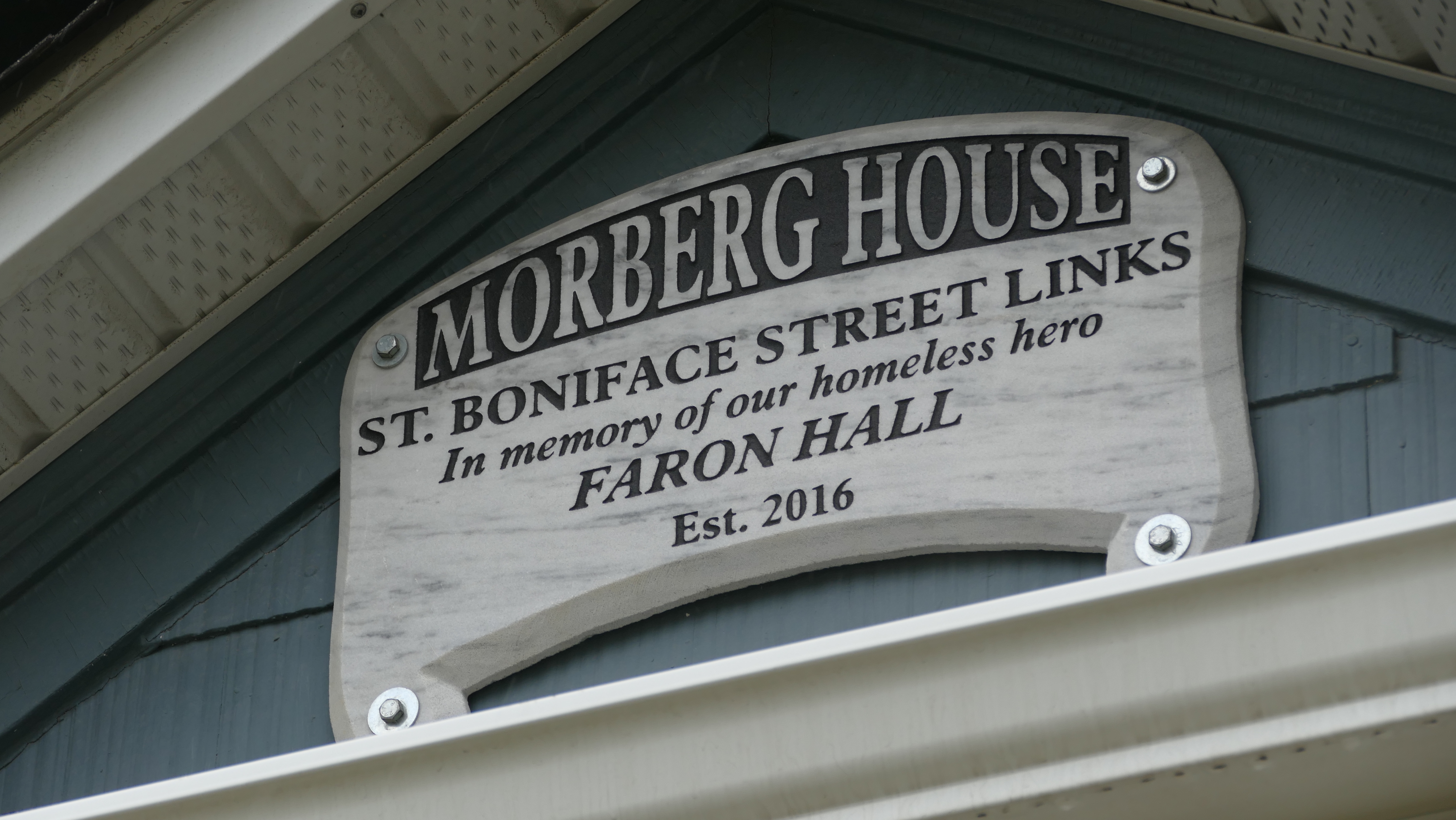
Ford was diagnosed with treatment-resistant depression. He didn't respond to any medication he was prescribed. For him, getting well involved changing his thinking patterns to be more stable and positive, and exercising to have a healthy body and a healthy mind — a clean, simple solution that he says was his only option.
Ford moved out of Morberg House and into his own apartment in St. Boniface in January.
Now he can face the person he sees in the mirror. He believes in himself.
"Stay strong, stay true to yourself without wearing that mask in the morning with the whole addiction. When you are homeless, you face hopelessness every day, but at Morberg House, there is hope. There is change," he said.
Morberg House has given him wings, he says.
"This is me, no mask, no filter, and that's that."
Ford is thinking about a possible career change. He'd like to be a talk show host, but he is keeping his options open.
Sam Lavallee is in the same headspace, taking it one day at a time.
"Before, I would say I am not going to be anything. I am going to be in the same dead end. Now I think I could be the next counsellor who makes breakthroughs to help these people out. You never know. Every day is a new day."
